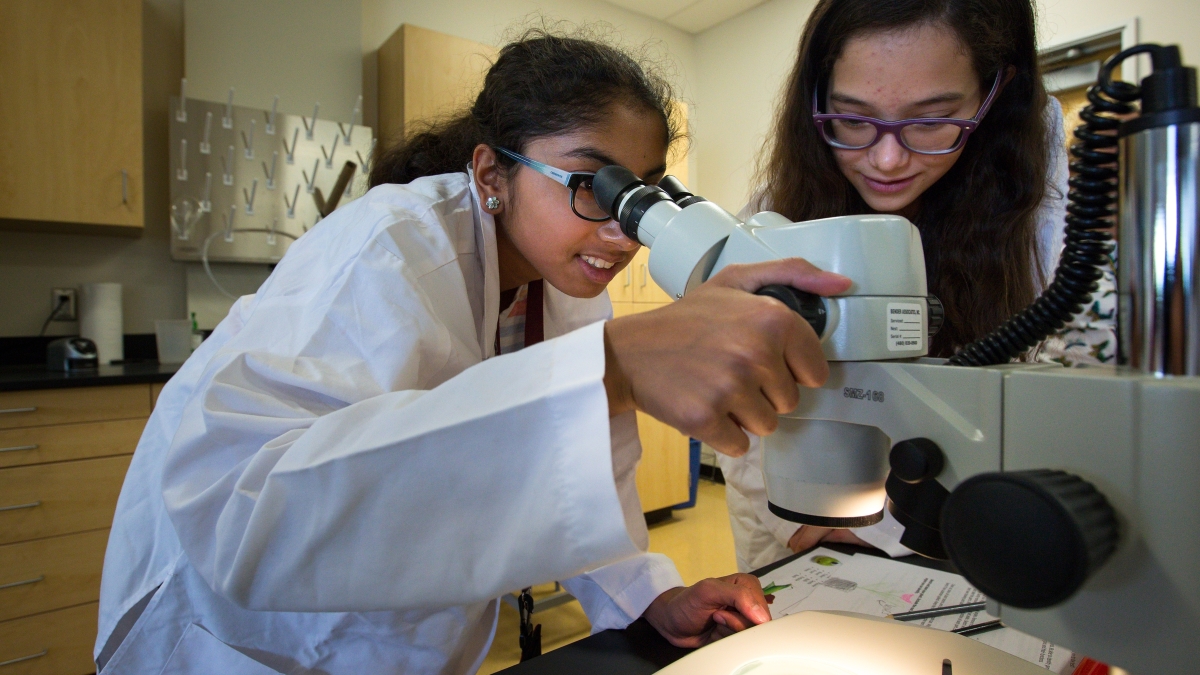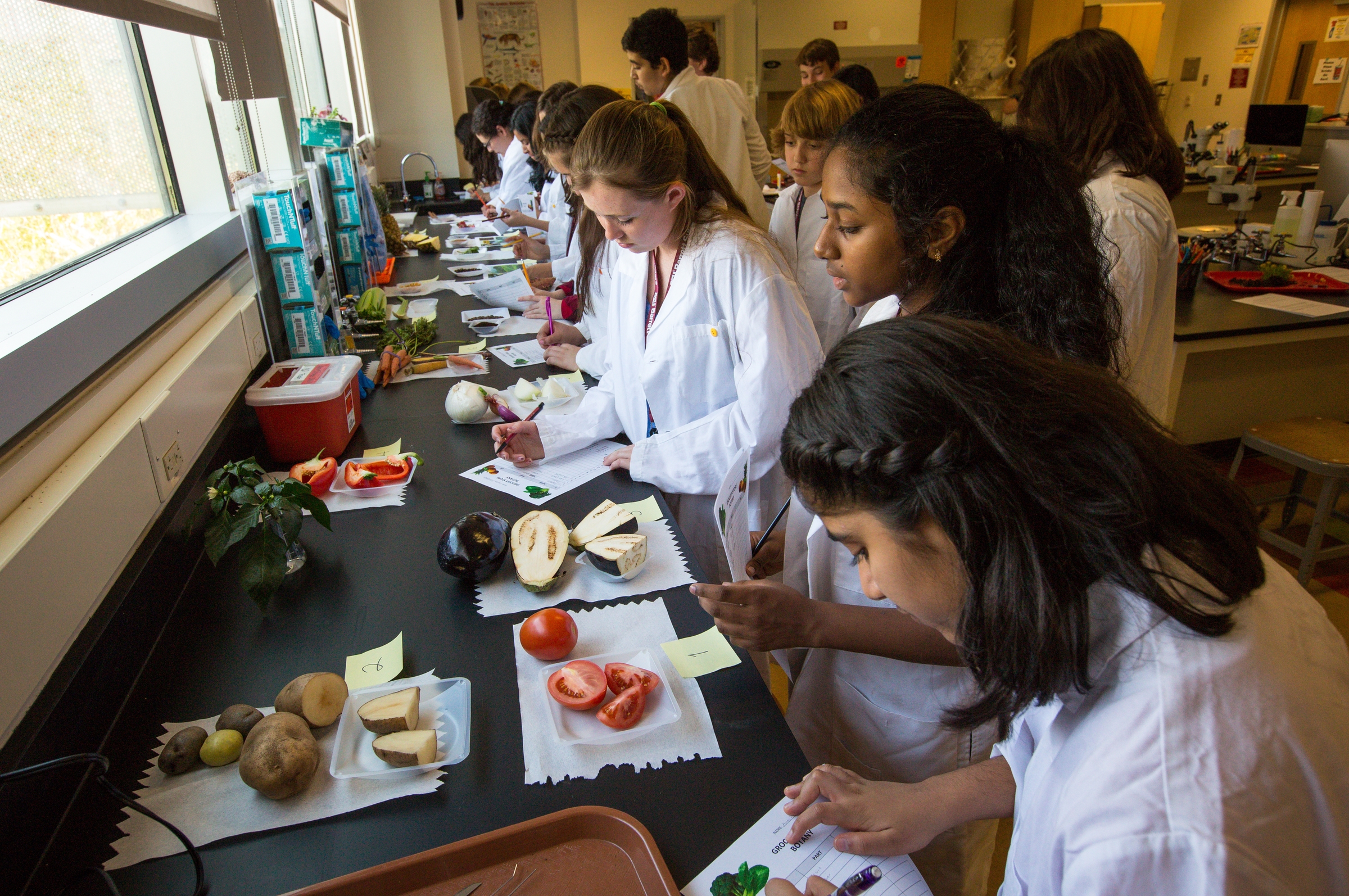School is out for the summer, but 26 high-achieving eighth-graders are spending this week dissecting plants, using a microscope and learning about physics and chemistry.
They were among 500 Barrett Summer Scholars — academically talented students who lived in the dorms, ate in the dining halls and were able to take college-level coursework at Arizona State University.
“There’s no test, no quiz. This is hands-on fun,” Cindy James-Richman told the group as they prepared to examine pink vinca flowers under a microscope. James-Richman teaches sustainable horticulture and biology in the College of Letters and Sciences at ASU’s Polytechnic campus.
“The first thing about being a scientist is that you need curiosity and observation,” James-Richman said to the students, who wore white lab coats, just like real scientists.
Now in its 10th year, the selective camp is sponsored by Barrett, the Honors College, and is a way for motivated seventh-, eighth- and ninth-graders from around the state to engage with each other and to learn about the unique opportunities they can find at Barrett. Camp applicants must have high grade-point averages and be recommended by a teacher.
About half the campers attend on scholarship because their families’ incomes are low enough to qualify them for free or reduced-price lunch. The camps are held at four ASU campusesTempe, West, Downtown Phoenix and Polytechnic.
“They get a taste of what college life is really about, and they get to take classes that they’re really interested in,” said Araceli Villezcas, coordinator for the camp.
Students do a lab exercise on grocery-store botany at the Barrett Summer Scholars program on Monday, June 27. The teens studied plant biology by looking at the parts of the plants and then examining common fruits and vegetables through the eyes of a scientist. Photo by Charlie Leight/ASU Now
The eighth- and ninth-graders take a scaled-down version of the Human Event, the critical-thinking seminar that’s a signature course in Barrett, the Honors College. All campers can choose electives they’re interested in, including journalism, nursing, engineering, sustainability, entrepreneurship and criminology. They study engineering by building with Legos, practice medical procedures on simulated patients and learn how to create smartphone applications.
The Barrett Summer Scholars session is so popular with campers that the ninth-graders created petitions and a social-media campaign to lobby for ASU to add a session for 10th-graders next year.
Soledad Romero, an eighth-grader who attended this week’s session at the Polytechnic campus, is another loyal Barrett Summer Scholar.
“I went last year and I really liked it, so that’s why I came this year,” she said.
“Even though it’s like school during the summer, I like the hands-on classes and I learned a lot.”
Top photo: Kamini Ramakrishna (left), 14, studies a petal from a Madagascar Periwinkle flower as partner Soledad Romero looks on during the Barrett Summer Scholars program on Monday, June 27. Photo by Charlie Leight/ASU Now
More Science and technology

ASU-led space telescope is ready to fly
The Star Planet Activity Research CubeSat, or SPARCS, a small space telescope that will monitor the flares and sunspot activity of low-mass stars, has now passed its pre-shipment review by NASA.…

ASU at the heart of the state's revitalized microelectronics industry
A stronger local economy, more reliable technology, and a future where our computers and devices do the impossible: that’s the transformation ASU is driving through its microelectronics research…

Breakthrough copper alloy achieves unprecedented high-temperature performance
A team of researchers from Arizona State University, the U.S. Army Research Laboratory, Lehigh University and Louisiana State University has developed a groundbreaking high-temperature copper alloy…



